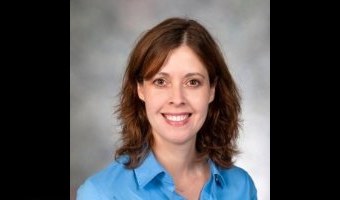The Condensed Matter & Surface Sciences Colloquium Series presents Christy Landes of Rice University, on “Single Molecule Dynamics at Soft Interfaces: from Basic Science to a $100,000,000,000 Problem” on Thursday, Sept. 28, at 4:10 p.m. in Walter 245.

Christy Landes
Abstract: Practical goals in materials engineering include minimal cost, maximum efficiency, and optimized longevity. As our experimental and theoretical methods to study nature’s molecular-scale design principles improve, we begin to understand that one reason nature can be so successful is that her engineering strategy often differs from ours. Whereas humans usually design materials with a single, well-defined function, nature often acts through redundant or degenerate channels that are individually not as efficient, but collectively, and in the face of damage or wear, outperform their synthetic cousins.
Obtaining clues from the biological structure-function interplay presents challenges for theory, experiment and data analysis. When we study one molecule at a time, we eliminate ensemble averaging, thereby accessing any underlying conformational complexity. However, we must develop new methods to increase information content in the resulting low signal-to-noise single-molecule data.
Our central question is: Can we take cues from the structure-function interplay and use of cooperative pathways in nature’s biomolecular processes to inform design principles for tailored functional materials applications? The pursuit of answers to this question presents challenges for theory, measurement, and data interpretation. The talk will present insights into the overall question, as well as highlight some of the innate challenges encountered along the journey. The biomaterials application I will highlight is ion-exchange separation of proteins.



















Comments